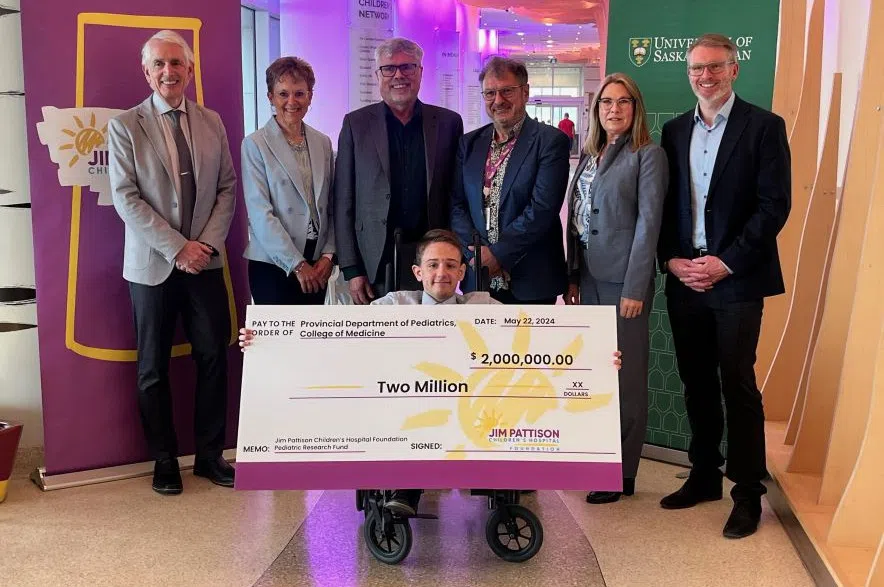The Jim Pattison Children’s Hospital Foundation is donating $2 million over the next five years, to create a new pediatric research fund at University of Saskatchewan’s Department of Pediatrics.
The money will be administered by Dr. Terry Klassen, the head of the provincial pediatrics department. He said it will be used not only to attract new doctors and specialists interested in continuing their own clinical research in Saskatchewan, but also to help kids receive better care.
Klassen cited an example where the federal government awarded a $20 million grant for research into rare pediatric diseases. Because the U of S has this new donation, it can now be “a player” in that national grant.
“We can ensure that Saskatchewan children can enter into the trials and other things and have access to these treatments,” he said.
“Hospitals that are involved in clinical trials, they have better outcomes with children. Part of it may just be the process of being in research, but part of it is actually access to treatment as soon as it’s developed,” he added.
Klassen said the goal is to be among the best of the children’s hospitals in Canada. To that end, he said it’s also the goal to “change impressions” of coming to Saskatchewan with the new research dollars.
“(I’m) talking to prospective candidates that want to come here — and a significant number of them ask about the research support. You know, they’d like to come here, but they have a research program in a certain area,” he explained.
Klassen emphasized that the brightest and best specialists want to work in a place where they can continue their cutting edge research.
Brynn Boback-Lane, JPCH Foundation president, said while the first priority is to ensure the capital needs of the children’s hospital are met, from there, there are opportunities for other projects and needs as well.
“It was an absolute pleasure and obviously very visionary for us to take the next step into what healthcare needs, which is research into children’s healthcare diseases and adversities,” she said.
Boback-Lane said the foundation receives anywhere from $8 million to $10 million per year in donations.
She added it would be up to Dr. Klassen to administer the money in the fund, and to decide the research priorities.











